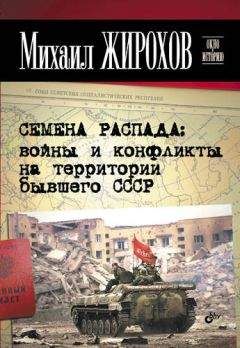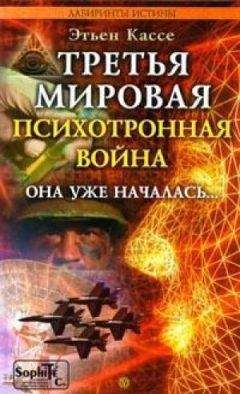Adam Makkai - Словарь американских идиом: 8000 единиц
[put to the sword]{v. phr.}, {literary} To kill (people) in war, especially with a sword. •/The Romans put their enemies to the sword./ •/In some wars captives have been put to the sword./
[put to use]{v. phr.} To use. •/During the early part of the Korean war the cooks and office workers of the U.S. Army were put to use in battle./ •/Henry decided to put his dictionary to use./ •/I wish you’d put the lawn mower to use!/
[put two and two together]{v. phr.} To make decisions based on available proofs; reason from the known facts; conclude; decide. •/He had put two and two together and decided where they had probably gone./ •/It was just a mater of putting two and two together: the facts seemed to permit only one decision./
[put up]{v.} 1a. To make and pack (especially a lunch or medicine); get ready; prepare. •/Every morning Mother puts up lunches for the three children./ •/The druggist put up the medicine that the doctor had prescribed./ Compare: MAKE UP(1). 1b. To put food into jars or cans to save; can. •/Mother is putting up peaches in jars./ 1c. To store away for later use. •/The farmer put up three tons of hay for the winter./ 2. To put in place; put (something) where it belongs. •/After he unpacked the car, John put it up./ •/After the hard ride, the doctor gave the horse to the stable boy to put up./ •/After the battle, the knight put up his sword./ Syn.: PUT AWAY. 3. To suggest that (someone) be chosen a member, officer, or official. •/The club decided to take in another member, and Bill put up Charles./ — Often used with "for". •/The Republicans put Mr. Williams up for mayor./ 4. To put (hair) a special way; arrange. •/Aunt May puts up her hair in curlers every night./ Compare: DO UP(3a). 5. To place on sale; offer for sale. •/She put the house up for sale./ 6a. To provide lodging for; furnish a room to. •/The visitor was put up in the home of Mr. Wilson./ •/They put Frank up at a good hotel./ 6b. To rent or get shelter; take lodging; stay in a place to sleep. •/The traveler put up at a motel./ •/We put up with friends on our trip to Canada./ 7. To make; engage in. •/He put up a good fight against his sickness./ Compare: CARRY ON. 8. To furnish (money) or something needed; pay for. •/He put up the money to build a hotel./
[put-up]{adj.} Artificially arranged; plotted; phony; illegal. •/The FBI was sure that the bank robbers worked together with an insider and that the whole affair was a put-up job./
[put up a (brave, good, etc.) flght]{v. phr.} To resist. •/He put up a good fight but he was bound to lose in the end to the older, more experienced chess player./
[put up a (brave] or [good) front] {v. phr.} To act courageously, even though one is actually afraid. •/When Joe was taken in for his open heart surgery, he put up a brave front, although his hands were shaking./
[put up or shut up]{v. phr.}{informal} 1. To bet your money on what you say or stop saying it. — Often used as a command; often considered rude. •/The man from out of town kept saying their team would beat ours and finally John told him "Put up or shut up."/ 2. To prove something or stop saying it. — Often used as a command; often considered rude. •/George told Al that he could run faster than the school champion and Al told George to put up or shut up./
[put upon]{v.} To use (someone) unfairly; expect too much from. — Used in the passive or in the past participle. •/Martha was put upon by the bigger girls./ •/Arthur was a much put-upon person./
[put up to]{v. phr.}, {informal} To talk to and make do; persuade to; get to do. •/Older boys put us up to painting the statue red./ Compare: EGG ON.
[put up with]{v.} To accept patiently; bear. •/We had to put up with Jim’s poor table manners because he refused to change./ •/The mother told her children, "I refuse to put up with your tracking in mud!"/ Compare: STAND FOR.
[put wise]{v.}, {slang} To tell (someone) facts that will give him an advantage over others or make him alert to opportunity or danger. •/The new boy did not know that Jim was playing a trick on him, so I put him wise./ — Often used with "to". •/Someone put the police wise to the plan of the bank robbers, and when the robbers went into the bank, the police were waiting to catch them./ Compare: TIP OFF.
[put words into one’s mouth]{v. phr.} To say without proof that another person has certain feelings or opinions; claim a stand or an idea is another’s without asking; speak for another without right. •/When he said "John here is in favor of the idea." I told him not to put words in my mouth./
Q
[q] See: MIND ONE’S P’S AND Q’S.
[Q.T.] See: ON THE Q.T.
[qualms] See: HAVE (NO) QUALMS ABOUT.
[quantity] See: UNKNOWN QUANTITY.
[quarterback sneak]{n.} A football play in which the quarterback takes the ball from the center and dives straight ahead in an attempt to gain a very short distance. •/Johnson took the ball over on a quarterback sneak for a touchdown./
[queen] See: HOMECOMING QUEEN.
[queer fish]{n.} A strange or unusual person who does odd things. •/Uncle Algernon dresses in heavy furs in the summer and short-sleeved shirts in the winter. No wonder everyone considers him a queer fish./
[queer oneself]{v. phr.} To act in such a manner as to offend others and thus one’s own chances or position. •/Phil has queered himself with many girls by his erratic behavior./
[quest] See: IN SEARCH OF also IN QUEST OF.
[question] See: BEG THE QUESTION, BESIDE THE POINT or BESIDE THE QUESTION, BEYOND QUESTION also WITHOUT QUESTION, CALL IN QUESTION, IN QUESTION, INTO QUESTION, OUT OF THE QUESTION, POP THE QUESTION.
[quick buck] See: FAST BUCK.
[quick on the draw] See: QUICK ON THE TRIGGER.
[quick on the trigger] or [trigger happy] {adj. phr.} Ready to shoot without warning; fast with a gun. •/He’s a dangerous criminal quick on the trigger./ 2. {informal} Fast at answering questions or solving problems. •/In class discussions John is always quick on the trigger./
[quick on the uptake]{adj. phr.} Smart; intelligent. •/Eleanor is very witty and quick on the uptake./
[quick study]{n. phr.} One who acquires new skills and habits in record time. •/Sue is new at her job but people have confidence in her because she is a quick study./
[quit] See: CALL IT QUITS.
[quite a bit] See: QUITE A LITTLE.
[quite a few] or [quite a number] also {formal} [not a few] {n.} or {adj. phr.} Rather a large number; more than a few. •/Quite a few went to the game./ •/The basket had quite a few rotten apples in it./ — The phrase "quite a number" is used like an adjective only before "less", "more". •/Few people saw the play on the first night but quite a number more came on the second night./ — Sometimes used like an adverb. •/We still have quite a few more miles to go before we reach New York./ Syn.: GOOD MANY, NOT A FEW. Compare: A FEW, A NUMBER.
[quite a little] or {informal} [quite a bit] also {formal} [not a little] {n.} or {adj. phr.} Rather a large amount; rather much; more than a little. •/We are not finished; quite a little is left to do./ •/Cleaning the backyard needed quite a little work./ — The phrase "quite a bit" is used like an adjective only before "less", "more". •/Six inches of snow fell today, and quite a bit more is coming tonight./ — Sometimes used like an adverb. •/Harry was sick quite a little last winter./ Compare: A LITTLE, A LOT, QUITE A PEW.
[quite a number] See: QUITE A FEW.
[quite the thing]{n. phr.} The socially proper thing to do. •/In polite society it is quite the thing to send a written thank you note to one’s host or hostess after a dinner party./
R
[rabbit] See: JACK-RABBIT START.
[race] See: DRAG RACE, RAT RACE.
[race against time]{v. phr.} To be in a great hurry to finish a given project by a specified deadline. •/The workers were racing against time to finish the campus modernization project./
[race to stand still]{v. phr.} To be so far behind in one’s work that one must exert an effort similar to that needed to win a race in order simply not to fall even further behind. •/"Could you review this book for us, Professor Brown?" the editor asked. "Unfortunately, no," the professor answered. "I’m so behind in my work that I am racing to stand still."/
[rack and ruin]{n. phr.} Complete decay; condition of decline. •/The entire house had been so neglected that it had gone to rack and ruin./
[rack one’s brain]{v. phr.} To try your best to think; make a great mental effort; especially: to try to remember something you have known. •/Bob racked his brain trying to remember where he left the book./ •/Susan racked her brain trying to guess whom the valentine came from./ •/John racked his brain during the test trying to solve the problem./
[radio ham]{n. phr.} Someone whose hobby is the operating of shortwave radio. •/The code letters C.Q. are used by radio hams to invite other radio hams to join in the conversation./
[rag] See: CHEW THE FAT or CHEW THE RAG, GLAD RAGS.
[rag doll]{n.} A doll made of cloth and filled with soft stuffing. •/My baby brother won’t go to bed without his rag doll./
[ragged] See: RUN RAGGED.
[rag trade]{n. phr.} The clothing industry. •/My brother is working in the rag trade, manufacturing dresses./
[railroad]{v.} To force through; push through by force. •/The bill was railroaded through the state legislature due to the influence of some very wealthy sponsors./
[rain] See: IT NEVER RAINS BUT IT POURS, KNOW ENOUGH TO COME IN OUT OF THE RAIN.
[rain cats and dogs] or [rain buckets] or [rain pitchforks] {v. phr.}, {informal} To rain very hard; come down in torrents. •/In the middle of the picnic it started to rain cats and dogs, and everybody got soaked./ •/Terry looked out of the window and said, "It’s raining pitchforks, so we can’t go out to play right now."/
[rain check]{n.} 1. A special free ticket to another game or show which will be given in place of one canceled because of rain. •/When the drizzle turned into a heavy rain the manager announced that the baseball game would be replayed the next day. He told the crowd that they would be given rain checks for tomorrow’s game as they went out through the gates./ 2. {informal} A promise to repeat an invitation at a later time. •/Bob said, "I’m sorry you can’t come to dinner this evening, Dave. I’ll give you a rain check."/
[rained out]{adj.} Stopped by rain. •/The ball game was rained out in the seventh inning./ •/The Friday night rally in the stadium was rained out./
[rain on]{v. phr.}, {slang} To bring misfortune to (someone); to complain to (someone) about one’s bad luck. •/Don’t rain on me./
[rain or shine]{adv. phr.} 1. If the weather is stormy or if it is fair. •/The parade will start promptly, rain or shine./ 2. No matter; if your luck is good or bad. •/Sam knows he can depend on his family, rain or shine./
[rainproof]{adj.} Resistant to rain; something that will not soak in water; referring to a material that repels water. •/"I don’t need an umbrella," she said, "as my coat is rainproof."/
[rainy day]{n.} A time of need; especially: a time when you really need money. •/Squirrels gather acorns for a rainy day./ •/Each week Mrs. Carlson saved a little money for a rainy day./
[raise a hand] See: LIFT A FINGER.
[raise a row]{v. phr.} To cause a disturbance, a fuss, or a scene. •/He raised quite a row when he noticed that someone had scratched his brand new car./



